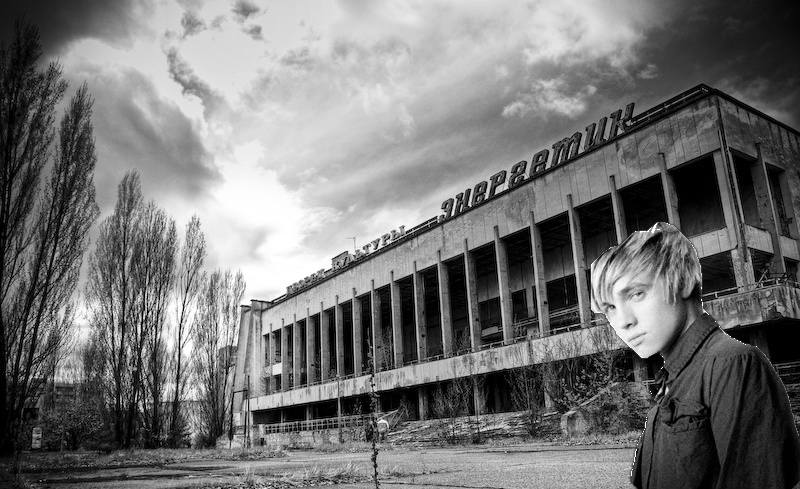Oh Hollywood, you really outdid yourself this time. This past weekend I went to the movies, settled down with my popcorn and prepared to be bombarded with the classic Hollywood propaganda. But no, this time I was in for a real surprise. As I sat trapped in an abyss of endless trailers, a preview came up and the words “Oh hell no,” escaped through my lips.
So get this. There’s this new movie coming out this month: The Chernobyl Diaries, another crappy “kids go exploring in places they shouldn’t and then get hunted down” sort of horror-film plot that has been plaguing Hollywood since God knows when. Not only is it produced by the same guy who did Paranormal Activity, but it stars the washed-up tween heart-throb who outgrew his middle school audience almost ten years ago, the one and only Jesse McCartney. If that weren’t bad enough already, this movie takes place in the abandoned Ukrainian city of Pripyat, the site of the worst nuclear disaster in history.
Less than thirty years ago, in 1986, a reactor at the plant exploded, contaminating Ukraine, Russia and Belarus with over fifty tons of radioactive materials. The fallout spread dangerous levels of radiation across Europe and exposed 4.9 million people.
The UN claims that the death toll from the disaster is 4,000, which is a significant number alone, topping the attacks of September 11, but non-governmental groups claim that the number reaches tens or hundreds of thousands. Exposure to the radiation caused huge spikes in cancer and birth defects both in humans and animals. It ruined crops, livestock and affected countries all across Europe.
The disaster displaced some 300,000 people. The health effects of the tragedy will continue to appear in the next six generations of victims. This was a real disaster that affected thousands of lives and continues to do so. Seeing as how there are 2.3 million people in the Ukraine alone who officially have been designated as victims of this accident, why would American filmmakers exploit this tragedy?
Well, it’s Hollywood for one thing. Filmmakers love making money at the cost of others. Just look back a few years to the September 11 attacks. Less than five years later, there were two movies created, one depicting the passenger’s experience on the hijacked plane in United 93 and the oh-so-versatile Nick Cage as a New York police officer in World Trade Center. Both of these were released in 2006. Too soon to profit from an American tragedy that took the lives of thousands? Apparently not.
So has Hollywood run out of ideas? Most big blockbusters, like the Harry Potter series, Twilight, The Help, The Notebook, Lord of the Rings, Forrest Gump and now The Hunger Games, have all been pulled off the bookshelves and transformed into cinema.
In addition to books, Hollywood has turned to real human tragedies to fill the void: Poseidon, Apollo 13, Schindler’s List and Titanic just to name a few. But is the glamorizing of real-life events in Hollywood fashion an attempt at honoring victims, or is it profiting from their pain? By tapping into our collective nostalgic soft spots, does Hollywood have the best intentions, or is it exploiting our emotions at the cost of others? It’s up to you to decide, but I’m guessing the verdict on The Chernobyl Diaries won’t be a hard one.

I beloved up to you will receive carried out proper here. The sketch is attractive, your authored material stylish. however, you command get bought an impatience over that you wish be handing over the following. ill certainly come further before again as precisely the similar nearly a lot frequently inside of case you shield this hike.